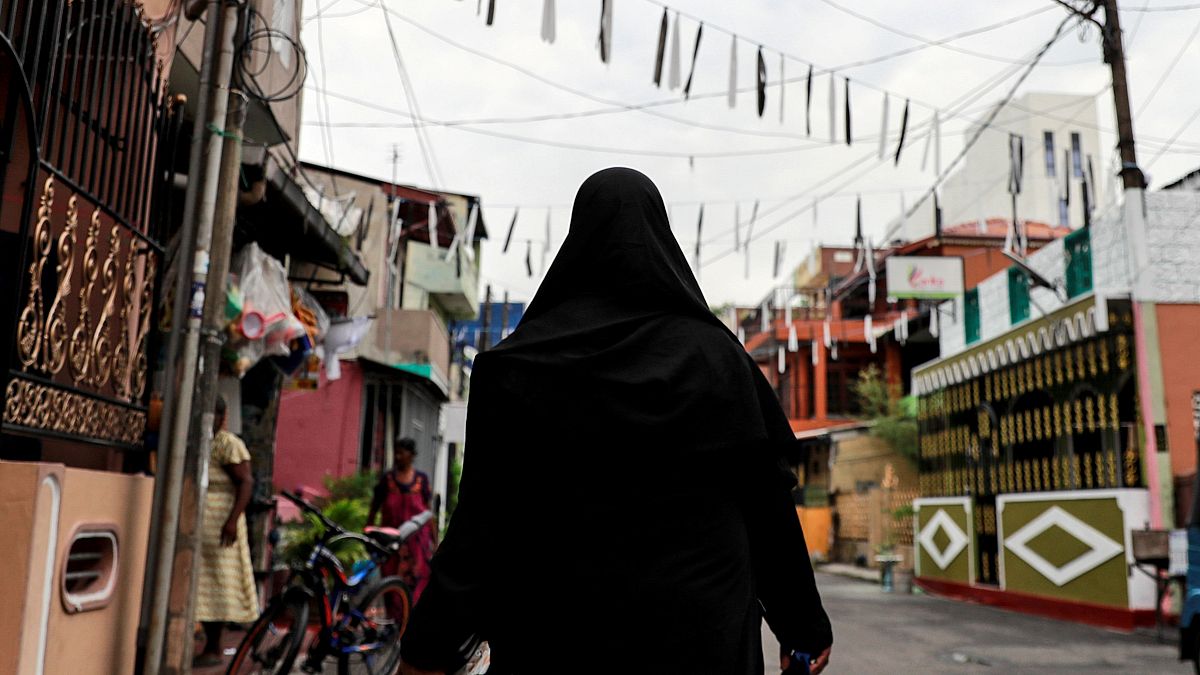Sri Lanka banned women from wearing face veils as security officials warned that Islamist militants behind Easter Sunday's bombings are planning ' imminent attacks.'
Sri Lanka banned women from wearing face veils as security officials warned that Islamist militants behind Easter Sunday's bombings are planning "imminent attacks," using a van and bombers disguised in military uniforms.
The ban is implemented under an emergency law that was put in place after the attacks. Government officials said it would help security forces identify remaining attackers.
Residents of Colombo's Muslim neighbourhood said they supported the ban on covering of faces.
"This is for our good I think. Now at this moment, you know the problem in Sri Lanka, according to the problem - face covering - at the moment, it's not good because they can't find (if) it is a man or a woman," said Nazar Mohammad, the manager of a fashion store that sells headscarves.
But there were concerns within the Muslim community that the ban could fuel tensions in the multi-ethnic nation.
'There could be another wave of attacks'
The face veil ban comes as security officials issued stark warnings about the possibility of imminent attacks.
"There could be another wave of attacks," the head of ministerial security division (MSD), a unit of the police, said in a letter to lawmakers and other officials.
"The relevant information further notes that persons dressed in military uniforms and using a van could be involved in the attacks."
The militants were targeting five locations for attacks on Sunday just passed or Monday, security sources said.
There were no attacks on Sunday, and security across Sri Lanka has been ramped up, with scores of suspected Islamists arrested since the April 21 bombings that killed more than 250 people.
Investigations continue
Authorities suspect members of two little known groups - National Thawheedh Jamaath (NTJ) and Jammiyathul Millathu Ibrahim - of carrying out the Easter attacks, though Islamic State has claimed responsibility.
Prime Minister Ranil Wickremesinghe said a tight-knit group of people was involved, mostly close friends and families. They spoke face-to-face, possibly to evade electronic surveillance.
"They (the group) were small enough that they were not using normal communications, instead meeting each other," Wickremesinghe told Reuters.
He added the coordinated bombings, the type of explosives used and the tightly guarded plot suggested the bombers had guidance.
"ISIS (Islamic State) has claimed, we also felt there has to be some international links," he said.
